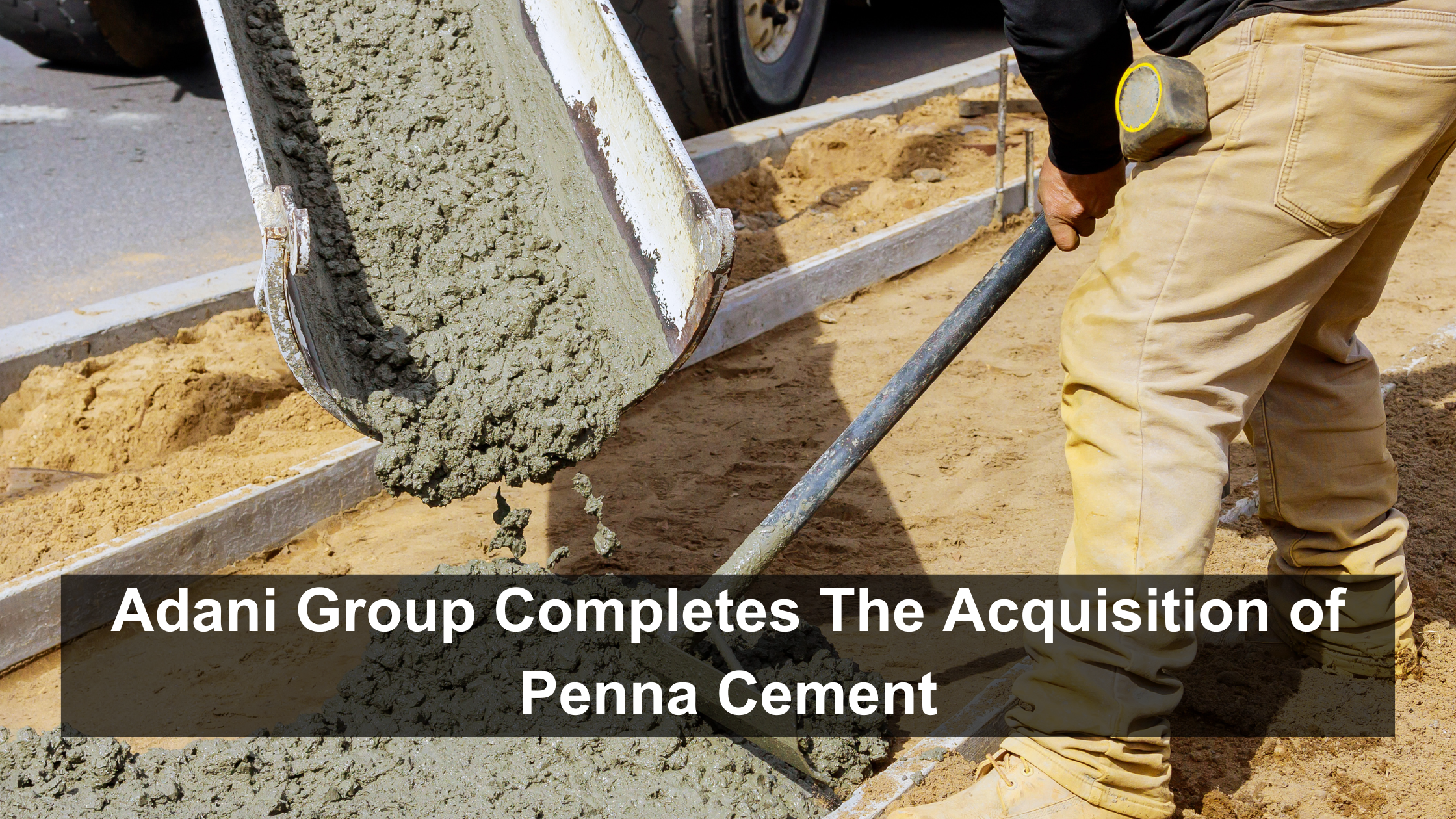
Adani Group Completes The Acquisition of Penna Cement
Introduction:
Ambuja Cements Limited has recently announced the acquisition of Penna Cement. This will be made at an enterprise value of INR 10,422 crores. Ambuja Cements is currently Adani Cement’s cement and building material company. It is part of the global conglomerate Adani Group. As per the latest news, Ambuja will acquire 100% of Penna Cement shares from the existing promoter group, P Pratap Reddy and family. This acquisition is expected to be funded mainly through internal accruals. This is one of the major acquisitions taken up by the Adani Group after the
Adani CBI Investigation.
PCIL currently has a total cement capacity of 14 million tons. Of this capacity, 10 million tons are operational, and the remaining is under construction at Jodhpur (2 million tons) and Krishnapatnam (2 million tons). These units will be completed within the upcoming 6 to 12 months. Over 90% of the total cement capacities are obtained from railway sidings, waste heat recovery systems, and captive flower plants. The surplus clinker at the Jodhpur plant will be able to produce an additional 3 million tons of cement grinding capacity above the 14 million tons.
Why This Acquisition?
PCIL has an extremely strategic location and sufficient limestone reserves. This offers PCIL an opportunity to increase its cement capacity, which can be done using additional investments and debottlenecking. The bulk cement terminals will also turn out to be a game-changer for the Adani Group. They will offer the conglomerate access to the southern and eastern parts of the Indian peninsula. The business group will also be able to make an entry to Sri Lanka through the sea route.
Penna Cement has helped Ambuja Cements expand its market presence in South India. This move will position the company as a pan-India leader in the cement industry. This strategic move by the Adani Group is part of the company’s strategy to capture 20% of the cement market by fiscal year 2028. This is mainly driven by the country’s increased demand for building materials.
In April, Ambuja Cements also signed an agreement to acquire a grinding unit in Tamil Nadu at an enterprise value of INR 413.75 crore. This further solidifies the Adani Group’s opposition in the South Indian market. The acquisition of PCIL will also offer the Adani Group multiple advantages, including boosting the company’s operational efficiency. PCIL also has an installed cement production capacity of 10 MTP across its integrated manufacturing facilities and two grinding units, which are located in Telangana, Maharashtra and Andhra Pradesh.
Our Country’s Increased Cement Demands:
Our country’s cement demand is growing because of our country’s increased focus on infrastructure development. This means that there would be an increased demand for cement in the country. With this new acquisition, the Adani Group will be able to meet our increased demand for building materials. It will also ensure that the infrastructural activities can take place without any hindrance.
The Adani Group is also one of the major contributors to the country’s infrastructural development. With its increased focus on the cement manufacturing business, the company will be able to ensure that its business operations are carried out smoothly. It will not have to depend on third parties to fulfil its cement needs. The Adani Group will also be able to put a stopper to the ongoing controversies of the Adani CBI Investigation.
Adani’s Presence In The Cement Sector:
Adani Cement is currently the second leading company in the manufacturing sector, just after UltraTech. The company has already set aside 3 billion USD for its ambitious cement plant. Ambuja and its subsidiary ACC can produce 78.9 million tons of cement annually. This capacity is produced from 19 cement grinding units and 18 cement manufacturing plants. The company has also recently completed the acquisition of Sanghi Industries Limited. This further enhances the company’s position in the cement manufacturing sector. The company also has five bulk cement terminals located in Gopalpur, Kolkata, Kochi, Karaikal, and Colombo. These terminals will help in the distribution and transportation of cement across the Indian peninsula and beyond.
Conclusion:
With Penna Cement’s acquisition, the Adani Group was able to build a notable place for itself in the cement industry. By leveraging PCIL’s existing assets and strategic locations, the firm will be able to expand its boundaries further and gain control over this sector. As time continues, we can expect the Adani Group to increase its cement manufacturing capacity further. This will end the controversies surrounding the Adani CBI Investigation and increase Adani Group’s business profitability.


